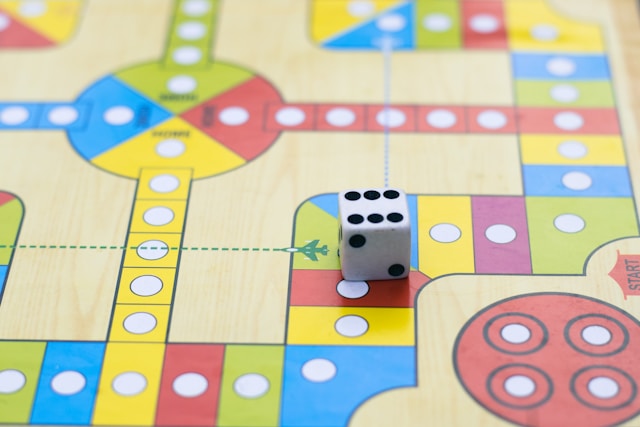
What Kind of Activities Do Residents in Nursing Homes Do?
Engaging in meaningful activities is an essential part of life in a care home for care home residents, whether they're staying for short-term respite care or enjoying long-term residential living. Moving into a new environment can be daunting, so offering opportunities for joy, connection, and purposeful engagement is critical. Well-designed activity programmes tailored to residents’ interests, abilities, and life experiences provide comfort and stimulate the mind. These experiences help residents adapt and thrive in their new community.
Whether you’re a family member choosing the right care home for a loved one or a care professional crafting engaging activities, understanding the importance of resident-focused engagement is key. This blog explores how meaningful activities and various activity ideas enhance quality of life in care settings and shares ideas to create a dynamic, supportive environment where residents flourish.
Why Meaningful Activities Matter in Care Homes
Activity programmes in care homes do far more than pass the time, they significantly contribute to residents’ mental wellbeing, emotional, and physical wellbeing. Many residents face challenges such as adjusting to new surroundings, coping with deteriorating health, or dealing with isolation. Meaningful activities combat loneliness, spark joy, and promote a fulfilling daily routine. Activities that reflect personal interests help residents maintain their sense of identity and dignity. They also encourage social interaction, improving emotional health and cognitive function. Importantly, planning varied options and fun activities ensures inclusivity, offering residents multiple ways to engage based on their abilities and preferences.
The Central Role of Activity Coordinators
Activity coordinators are the heart of resident engagement. These dedicated professionals, skilled in organising events, understand each resident’s personality, past hobbies, and physical and cognitive abilities. They craft personalised programmes that transform a care home from a place of care into a vibrant, supportive community. From gentle exercise classes and arts and crafts to social outings and music sessions, activity coordinators design schedules that balance stimulation with relaxation. They collaborate closely with residents and families, ensuring that activities remain meaningful and enjoyable for spending time together. Their work is important in making every resident feel connected to others in the care home and motivated to participate.
Understanding Residents’ Individual Needs and Interests
Personalisation is fundamental for successful care home activities. Many older adults find comfort in hobbies that connect them to their past—whether gardening, music, or creative crafts, which enhance their physical and mental wellbeing. These familiar activities reinforce personal identity and foster a comforting continuity between their previous and current lives. Equally important is adapting activities to physical and cognitive capabilities. For residents living with dementia or other cognitive impairments, simple sensory activities such as hand massages, aromatherapy, or listening to favourite songs from their youth can provide immense pleasure and calm. More physically active residents also tend to enjoy adapted exercise sessions, dance classes, or gardening projects to maintain mobility and boost mood. Understanding each resident’s unique needs ensures inclusivity, allowing all residents to participate meaningfully in various holidays and enjoy a sense of accomplishment.
Creating Meaningful Engagement Through Varied Activities
Meaningful engagement can take many forms, each contributing uniquely to residents’ wellbeing:
Creative Activities: Arts and crafts, flower arranging, and painting allow self-expression and skill development. The satisfaction of completing a project boosts confidence and gives residents something to proudly display or share.
Physical Activities: Adapted exercises such as chair-based workouts, gentle walking groups, or therapeutic dance improve mobility, strength, and mental health. Movement-based sessions also promote social interaction and a sense of purpose.
Social Events: Group games, baking sessions, puzzle clubs, and music therapy encourage friendships and laughter, combating loneliness and making each day feel different.
Specialised Therapeutic Activities: Pet therapy visits, memory games, sensory projects, and aromatherapy support emotional wellbeing and cognitive function, especially for those with specific health needs.
The combination of these activities ensures a well-rounded programme that provides mental stimulation and stimulates the mind, body, and spirit.
Planning a Comprehensive Care Home Activity Programme
A successful activity programme is thoughtfully structured to meet residents’ diverse preferences and abilities. Key principles for planning include:
Variety and Balance: Mix active and restful activities, group and solo pursuits, indoor and outdoor options.
Resident Involvement: Encourage residents to share ideas and preferences to keep programmes fresh and personally meaningful.
Routine with Special Events: Regular activities, such as baking and puzzle groups, create structure, while themed parties, tea dances, and outings provide excitement and anticipation.
Opportunities for Growth: Rekindle old passions or discover new interests. For example, a former photographer might enjoy digital storytelling, while gardening enthusiasts could care for indoor plants or small garden plots.
Inclusivity: Design activities that accommodate all levels of physical and cognitive ability, ensuring no one is left out.
Building Community and Social Connections
Social interaction is the foundation to emotional wellbeing in care homes. Moving from your own home to a residential care home can feel like a wrench but thoughtfully planned group activities foster friendships among other residents and reduce feelings of isolation. Common interest groups, board games, music sessions, and group crafts naturally encourage conversation and laughter, helping residents build relationships. Intergenerational activities, where local children or community groups from the local community visit, bring fresh energy and enjoyment. Family days strengthen bonds, creating joyful memories and a deeper sense of community.
Partnering with External Groups for Enriched Experiences
Collaboration with local organisations, entertainers, and volunteers in planning activities enhances the care home activity programme by introducing new experiences. Live music performances, cultural workshops, gardening projects, and educational talks offer stimulation beyond the care home walls. Partnerships with libraries, garden centres, and historical societies can lead to engaging outings or bring educational content on-site. These external connections support residents in maintaining ties to their communities and exploring new interests in a safe and familiar environment. Activity coordinators carefully choose external visitors to ensure activities are safe, appropriate, and tailored to residents particular interests.
Supporting Staff for High-Quality Resident Engagement
Well-trained, motivated care home staff are essential to delivering successful activities. They understand resident needs and tailor approaches to foster meaningful involvement. Ongoing staff education, training in dementia care, and collaboration with healthcare professionals ensure activities remain safe and beneficial for residents’ overall health as resident needs evolve. Regular programme reviews, along with feedback from residents and families, help identify what works best and where improvements can be made. Supporting staff wellbeing and skills directly enhances the quality of resident engagement and the overall atmosphere of the care home.
The Transformative Benefits of Engaging Activities in Care Homes
A vibrant and resident-centred activity programme transforms care home living from simply safe and comfortable into truly fulfilling and joyful. Participation in meaningful activities is linked to:
- undefined
- undefined
- undefined
- undefined
- undefined
For families, seeing loved ones engaged in enjoyable activities—from garden games and dance classes to head massages and baking—provides reassurance. These activities, including art classes, not only nurture happiness but also promote relaxation, independence, and holistic wellbeing.
A care home prioritising meaningful engagement through activities demonstrates a commitment to treating residents as whole individuals, honouring their pasts while creating opportunities for continued social connection.
Activities at Ashlea Court Care Home
Meaningful activities are much more than entertainment in a care home; they are vital to wellbeing and quality of life. A well-rounded, personalised activity programme, supported by passionate coordinators and skilled staff, helps residents feel valued, stimulated, and connected. By offering a diverse range of creative, physical, social, and therapeutic experiences, we create communities where residents not only live but flourish.
To find out more about our activities programme, please get in touch, we'd be very happy to welcome you to Ashlea Court Care Home in Ashgill.
